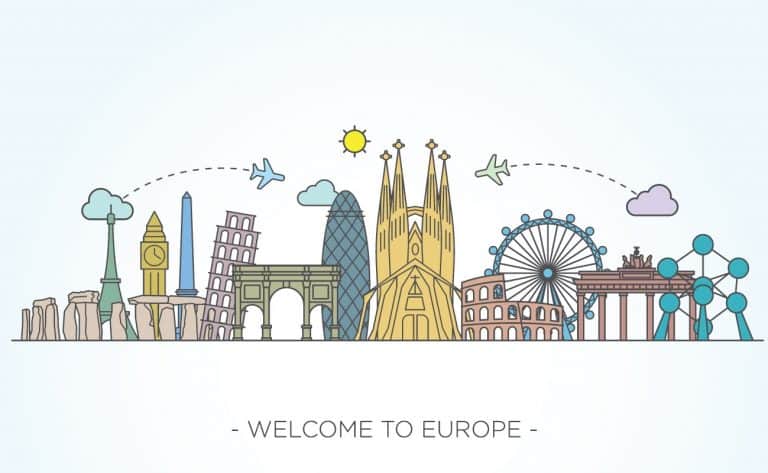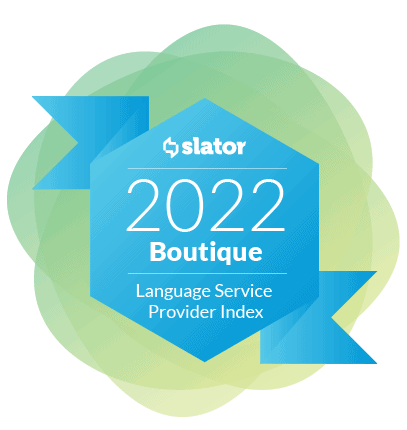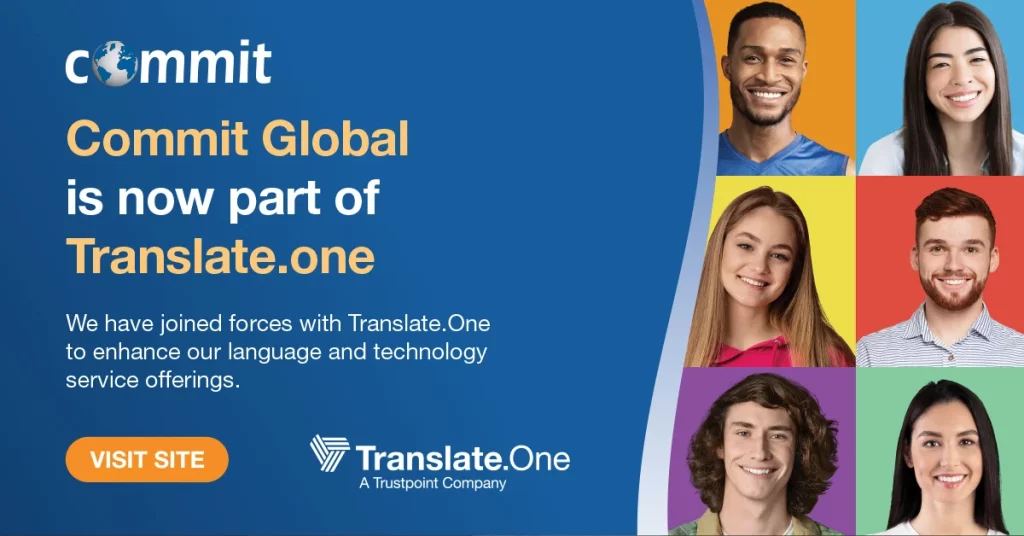|
Listen to Post
|
Listen to this article now:
by Yannis Nistas, Language Lead at Commit Global
Language has always played a pivotal role in our societies and lives. It is a means of communication; of understanding the world we live in; of giving a name and meaning to new concepts; of defending oneself in courts; of closing deals, however small or big; of hurting people or saying “I love you” to our other halves; of bringing people together or separating them; of exploring new cultures, and the list goes on. In a nutshell, language is what makes the world go round. OK, just to be fair, money does the same too.
Speaking of money, did you know that language can help businesses enter foreign markets to pursue their fair share of sales and earn millions? And do you know a place in the world where language is taken very seriously? That is Europe and the European Union (EU). Let us have a brief look at why a company should enter the EU market in the first place, why invest in localization, how to make it happen, and a language service provider’s role in this journey. But first, let us briefly present the language status quo in the EU.
EU Languages Overview
A politico-economic union of 28 member states, the EU is also known for its linguistic diversity or multilingualism. It has 24 official languages, while some other 60 languages are spoken in specific regions or by specific groups. The principle of multilingualism lies at the heart of the EU in line with the bloc’s motto “United in Diversity”.
Why Enter
The EU is home to some 500 million citizens with above-average living standards, which means they have high purchasing power. The Europeans have set up a single internal market to facilitate the provision of goods and services within their territory. It is a highly regulated market with standardized rules and regulations across different economic sectors that ensure predictability. It is an open economy with a great impact on global trade. No one can sum it up better than the EU itself: “The openness of our trade regime has meant that the EU is the biggest player on the global trading scene and remains a good region to do business with.”
On a different note, the EU is now recovering from an economic slowdown. As with every financial crisis, in the aftermath there are also many opportunities for growth and the creation and development of new markets, both niche and large-scale. The Europeans are still among the wealthiest people in the world, and they can support consumption-driven, services-related, and technology-based offerings, among others. The youngest of them are familiar with mobile apps, video games and other aspects of the digital and knowledge economy.
So, YES, the EU market is worth your localization money and efforts.
Why Localize
As mentioned above, the EU is a multilingual union of states. While English is the most widely spoken foreign language in Europe by 38%, there is another 62% of people that speak other languages.
Also, when it comes to selling abroad and establishing foreign presence, you should always keep in mind the “speak-your-buyer’s-language” principle. As my colleague Dina Kessaniotou, Project Coordinator, put it in her article a while ago, “Even though English is a commonly used language in many markets, talking to people in a language they understand in depth seems to achieve much better results.”
Furthermore, in certain sectors, such as the pharmaceutical and medical devices industry, localization is a prerequisite for entering the EU market due to the strict regulatory framework covering the marketing of drugs and medical devices in the EU, and, of course, due to the risks their use might entail.
So, YES, invest in localization. The ageing European population you may be targeting to boost the sales of your innovative handheld ECG recorders, for example, will surely want to read the Instructions for Use in their mother tongue. Or, the young French will feel more comfortable attending your e-learning course in their language.
How
This could be the topic of a separate article, but let us look at some basic options. You should first decide how you want to enter the EU market. For example, will you cooperate with dealers who will sell your products or will you sale them directly through your own website? In the former case, you may only need to localize your products’ documentation and maybe some limited marketing material. In the latter case, you should additionally localize your website in the language spoken in your target markets. In addition, if your product is an electronic device running a software you may also need to localize the user interface for better user experience. For software, video games, websites and other multimedia content, your efforts should revolve around the broader process of globalization, of which internationalization and localization form part.
But would just localizing your content do the job? In certain cases, you should go a step further and ask for transcreation services. This applies mostly to advertising and marketing material, and includes the process of adapting a message from one language to another while keeping its intent, style, tone and context. This ensures cultural adaptation to the greatest extent and helps to avoid translation blunders that can lead to laughs and, even worse, failed investments of time and money.
When deciding how to render your content in your target markets’ language, you could ask for consulting services from a language service provider to help you with your decision-making. Answer their questions about your needs and requirements, your products and services, the type of your content and file formats, your target groups and markets, etc., and let them set up the right localization strategy for you.
So, YES, do learn about all the available language services and choose the ones that best fit your needs.
For the end, here is our suggestion: Embark on the localization journey as part of your go-to-market strategy and discover new revenue streams! Trusting a team of experts can guarantee a safe landing on your European destinations. Just tell them where you want to go and leave the rest to them!









